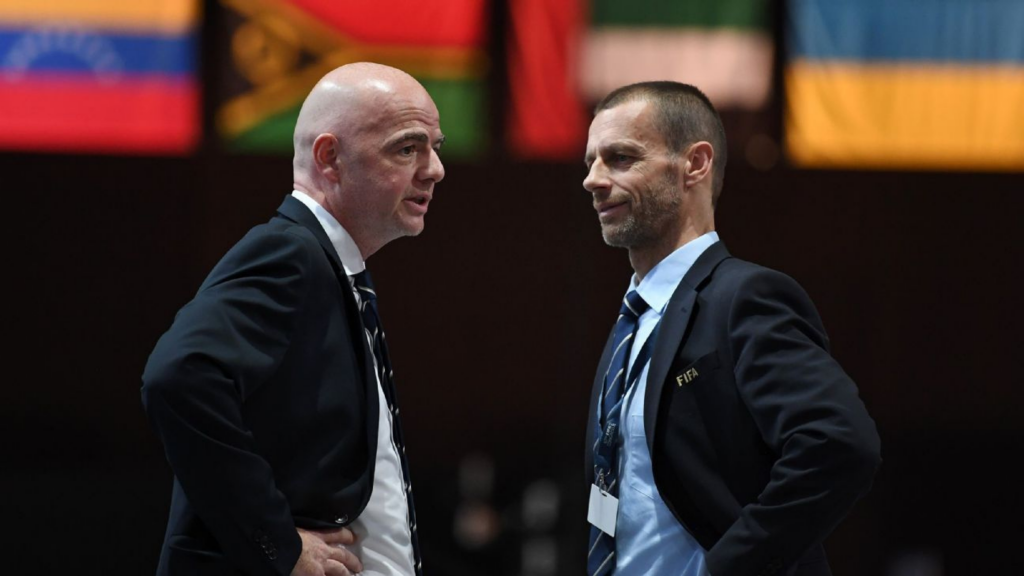FIFA president Gianni Infantino is still facing a major obstacle in Aleksander Ceferin and UEFA in his plans for a biennial World Cup.
FIFA plans to hold a stakeholders meeting with its 211 member nations on Monday. Ahead of the meeting, FIFA released the results of a fan survey which shows a majority disposition to a more frequent World Cup.
FIFA’s survey claims 63.7 percent of football fans surveyed would like to see a more frequent World Cup tournament. However, the survey respondents voted in favour of a more frequent World Cup if it will not increase player workload.
Meanwhile, UEFA has come out with their own reports and has warned of a “deeply negative outlook” for international football should FIFA’s plans scale.
Also, in FIFA’ survey, European fans made up a small percentage of the majority vote and the major percentage of the minority vote of 48 percent who voted against the biennial World Cup.
The minority vote against the biennial World Cup came from three of the strongest footballing nations of England, Germany and France which also presents a headache for President Infantino.
The results of the FIFA survey and UEFA’s stance
Majority of Europe were against it, but 10 percent of the English fans surveyed were in favour of the idea.
African and Asian fans made up the majority of the positive responses with 76 percent and 66 percent of fans from these continents voting for the idea respectively.
Age also played a role in the votes, with the younger fan demographic mostly in support and the older ones opposing the idea.
UEFA’s study to rival FIFA’s survey “raise severe concerns over the sustainability of the plan for European associations”, according to reports. UEFA’s study also noted that the plans for the biennial World Cup raised issues for other sports, a concern previously brought up by the International Olympic Committee.
UEFA’s study had a survey in which only 25 percent of European fans gave their yeses while 40 percent said they would watch less knockout and group matches and 60 percent thought the World Cup’s prestige would drop.
UEFA’s statement read: “In this dark sporting context, the research conducted by Oliver & Ohlbaum projects a deeply negative outlook for European national team football, should the FIFA plan be implemented.
“Adding up the losses from centralised revenues (media rights of men’s European Qualifiers and Nations League; distributions from UEFA EURO) and from individual sources such as ticketing and sponsorships, revenues for European national associations might drop between €2.5 and €3 billion over a cycle of four years, depending on the number of qualifying windows available (two or just one).
“Echoing the clear objections expressed by the European stakeholders on several occasions and the firm and motivated opposition announced by fans’ organisations, UEFA believes that radical changes should be proposed only if they result in clear and unquestionable benefits for the game and its actors.”
Why is FIFA proposing a biennial World Cup?
FIFA claims that a biennial World Cup will create more funds that could benefit African, Asian and South American member nations who have a greater reliance on FIFA funds.
FIFA President Gianni Infantino also wants to “make football truly global” by opening up the World Cup to smaller countries.
This move has already begun with the expansion of the tournament to 48 teams from 2026 and is expected to solidify with the biennial World Cup.




